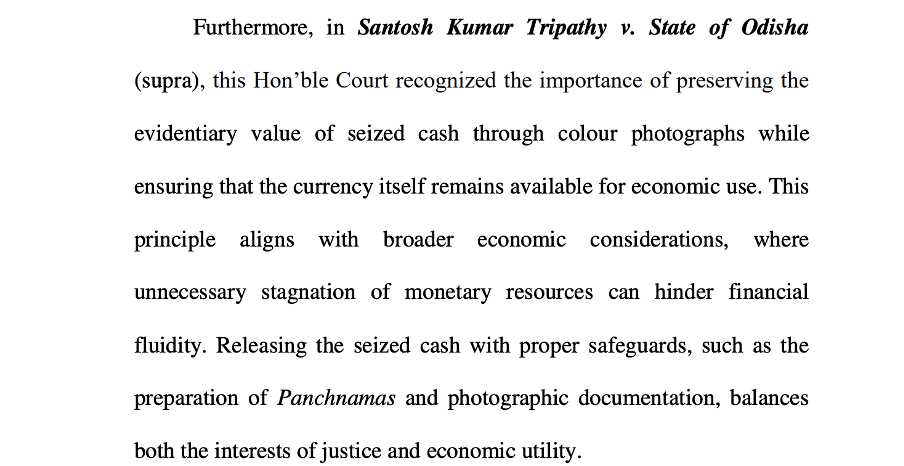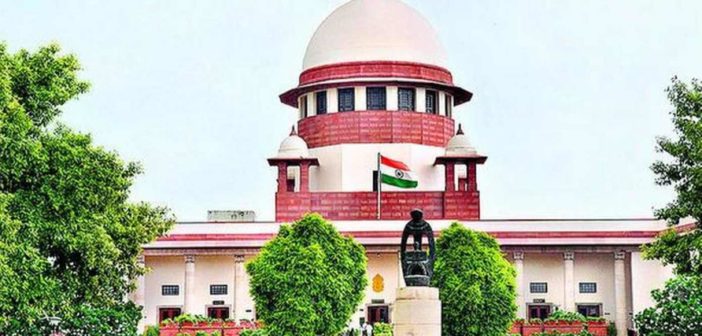In this edition of Court judgments review, we look at the Supreme Court’s judgement that courts must exercise caution in matrimonial cases involving physical and mental harassment, Odisha HC’s guidelines for dealing with seized money, property, and other material, Rajasthan HC’s order that re-testing of substances alleged of having drugs content should not be allowed in the ordinary circumstances, among others.
SC: Courts must exercise caution in matrimonial cases involving physical and mental harassment
In Kamal (Husband) & Ors (Appellants) vs. State of Gujarat & Ors (Respondents), the Supreme Court (SC) held that a few taunts here and there which are part of everyday life do not constitute the offence of dowry harassment and the cruelty by husband or his relatives, without sufficient material proof.
The facts of the case were that the Appellant No. 1 (Husband) and Respondent No. 2 (Wife) were married in 2005, but lived separately after a period of time. In 2019, the husband applied for divorce. Within 3 days of receiving notice, the wife approached police alleging husband and her relatives caused mental harassment, assault, and misuse of her salary by her in-laws. Accordingly, an FIR was registered against them.
The Appellants approached the Gujarat High Court (HC), arguing that the FIR was retaliatory, filed just three days after the husband served his wife with divorce proceedings. They claimed the allegations were vague and mala fide, especially against the parents-in-law, who lived separately.
The HC dismissed their petition, citing that the allegations warranted trial scrutiny. However, the SC found that while the FIR alleged assault and torture by the Husband, the claims against his parents were limited to unspecified taunts and financial grievances without detail. Noting the delay in filing the FIR (14 years after marriage) and its proximity to the divorce notice, the Court viewed it as possibly vindictive.
Therefore, the court emphasised the need for caution in matrimonial cases where criminal proceedings may be misused against in-laws. It was observed that minor taunts, absent concrete evidence of cruelty or dowry demands, do not justify a criminal trial.
Accordingly, the court quashed the FIR and criminal proceedings against the Husband’s parents, deeming them an abuse of legal process. However, it allowed proceedings to continue against the Husband, directing the authorities to proceed in accordance with the law.
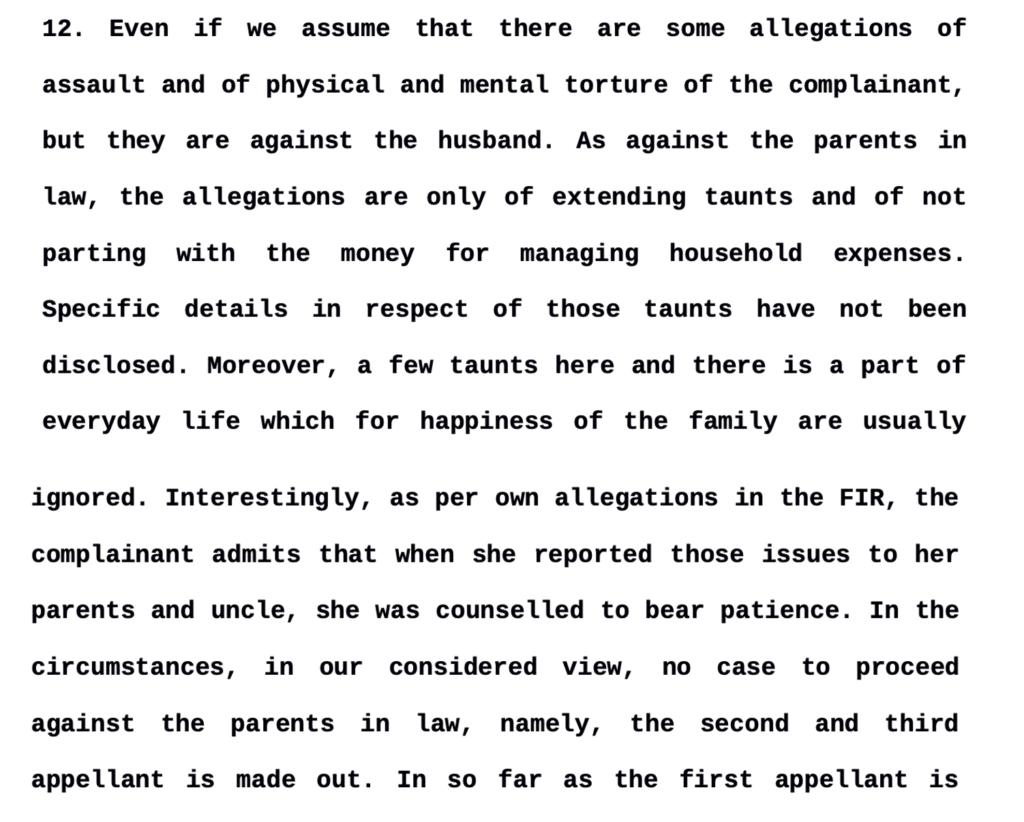
Delhi HC: Observes that governments must work out mechanism to smoothen the discharge process and settling of the medical Bills
In Shashank Garg vs. State & Ors, the Delhi HC observed that the incidents of hospital patients suffering delays in settling bills are not an untold story; the government must work out mechanisms which will smoothen the process to avoid trauma experienced by the patients.
The facts of the case were that the petitioner, an advocate, was diagnosed with cysticercosis. He was the holder of a cashless insurance policy with Max Bupa Insurance Company. He opted for surgery at Max Hospital, where the estimated costs were Rs. 1.79 lakhs for a shared room and Rs. 2.20 lakhs for a single room. Though the hospital received pre-authorisation for Rs. 75,000 from the insurance company, they insisted petitioner deposit Rs. 1.45 lakhs before surgery. The operation was performed on 08 October 2013, but the petitioner claimed he was not discharged until late on 09 October 2013, even after full insurance approval was received. He further alleged that the hospital did not initially apply the agreed discount of Rs. 12,495 and wrongfully adjusted Rs. 57,332 from his deposit despite full payment assurance from the insurer.
Therefore, he approached the metropolitan magistrate, accusing the respondents, Max Super Speciality Hospital, its staff, and management, of cheating, criminal breach of trust, wrongful restraint, and conspiracy.
The respondents, including Max Hospital and its staff, argued that no criminal offence was committed. They stated that the petitioner was asked to deposit Rs. 1.45 lakhs only because the insurance company had initially approved just Rs. 75,000. The final approval of Rs. 1.73 lakhs came hours before discharge. The hospital claimed the petitioner opted for a higher category room, justifying the additional charge of Rs. 57,332. They contended that any billing errors were promptly corrected and excess funds refunded. The delay in discharge was due to procedural formalities, not wrongful restraint or conspiracy, as alleged by the petitioner.
The lower court discharged the respondents, and the appellant challenged the discharge order before the HC. The HC also upheld the discharge, concluding that no dishonest or fraudulent intent was evident. The delay in surgery and discharge was linked to procedural requirements and insurance approvals.
Before parting, the Court acknowledged the common difficulties patients face during discharge due to delayed insurance approvals, recognising the need for systemic reform. It stressed that such procedural inconveniences, while frustrating, do not constitute criminal acts and highlight the necessity to evolve smooth processes.
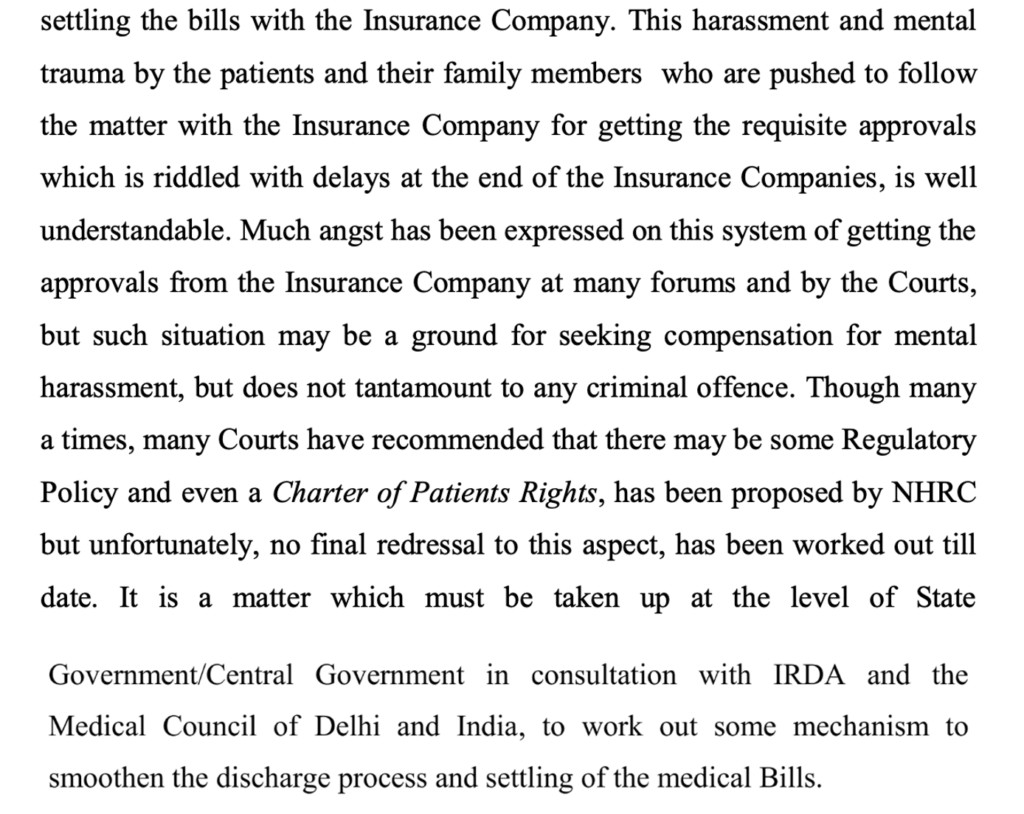
Rajasthan HC: Issues show cause notices to authorities failing to comply with the directions on heatwave mitigation measures
In a suo-motu matter titled “Beat the Heatwave and Climatic Change to save the life of Public at large”, the Rajasthan HC, deeply concerned by the escalating heatwave crisis and climate change in the state, issued strong directions to the government to protect public health and ensure proactive climate action.
Triggered by soaring temperatures in districts like Churu (which recorded 50.5°C) and over 700 reported deaths due to heatstroke across India in mid-2024, the Court had already initiated suo-motu proceedings last year under the title “Save the Planet Earth and Future Generations”, and issued several directions to safeguard the health of the people, birds, and other creatures from the heatwaves. However, the state authorities had not complied with them.
The court noted that no meaningful progress had been made in implementing the projects, such as the Rajasthan Climate Change Project’s Heat Action Plan (HAP), the national scheme “Strengthening Health Systems Preparedness for Heat Related Illness (HRI)”. Further, it also observed that the government had neglected its previous direction, including key heatwave mitigation measures like shaded public spaces, water sprinkling on roads, drinking water for animals and people, ORS distribution, and heat advisories for outdoor workers etc. Therefore, it held the state government responsible for its inaction, terming the delay contemptuous and a serious breach of public trust. Therefore, it issued show cause notices to the respondents.
Importantly, the court also held that excuses of lack of budget should not be shown by the government to not comply with its directions, since public welfare overrides the expenditures on ceremonies and publicity campaigns. It emphasised that taxpayers’ money should serve life-saving and environmentally essential policies.
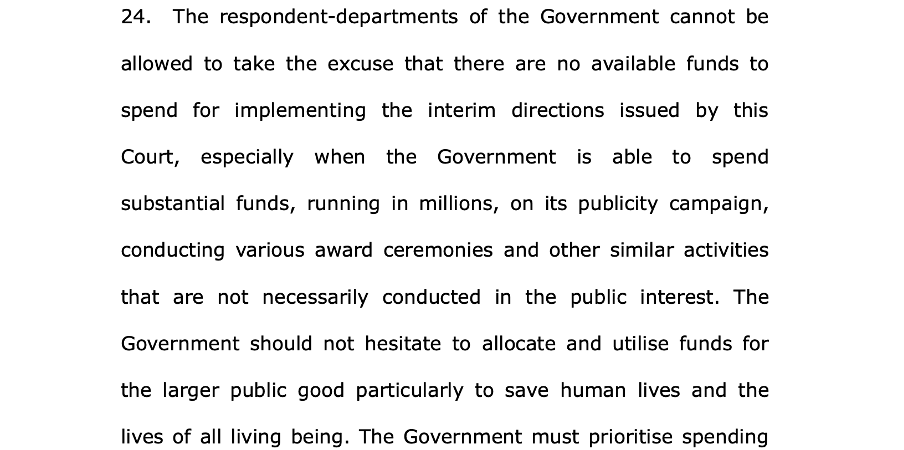
Rajasthan HC: Re-testing of substances alleged of having drugs content should not be allowed in the ordinary circumstances
In Sadaram & Ors vs. State of Rajasthan & Ors, the Rajasthan HC held that re-testing of substances for having drug contents under the Narcotics Drugs & Psychotropic Substances (NDPS) Act should not be done in ordinary circumstances
The facts of the case were that the petitioners sought quashing of the FIR, which was based on a police raid at the petitioner’s residence, where co-petitioners Budhram and Bhanwarlal were allegedly found attempting to flee. Police reportedly recovered 3.376 kg of suspected Mephedrone (MD), an electronic weighing scale, a sealing machine, and ₹1,50,400 in cash.
However, the Forensic Science Laboratory (FSL) report later revealed that the seized substance did not contain any psychotropic material and was in fact neutral. A second set of control samples sent for verification also confirmed the absence of any narcotic or psychotropic substance, including Methamphetamine (MDMA).
The court emphasised that re-testing or re-sampling under the NDPS Act is strictly limited. Drawing on the previous judgment of the SC, the court held that such actions are only permissible in exceptional cases and must be requested within 15 days of receiving the original report. Courts must provide specific reasons for allowing such requests. For future compliance, the court ordered the Director General of Police, Rajasthan, to inform all SHOs about the legal position, and the Registrar General must circulate this order to all judicial officers handling NDPS cases.
Since both FSL reports showed no contraband, the HC quashed the FIR and all proceedings against the petitioners.
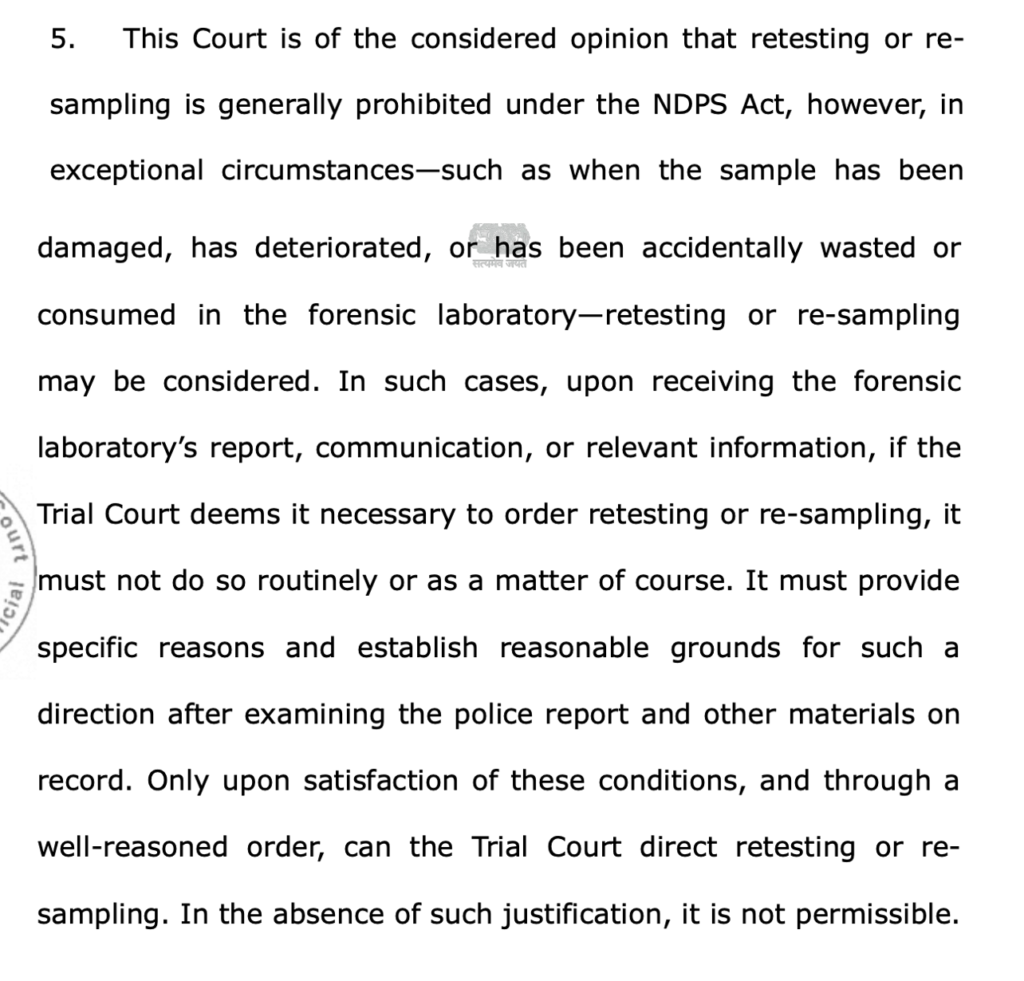
Odisha HC: Issues guidelines for dealing with seized money, property, and other material
In Lakshman Srinivasan (Petitioner) vs. Republic of India (CBI) (Respondent), the petitioner filed a criminal revision petition under Bharatiya Nagarik Suraksha Sanhita (BNSS), 2023, challenging a trial court order denying the release of ₹15 lakh seized by the CBI during the investigation into a massive financial fraud. The cash was recovered during a search of the petitioner’s office chamber. The trial court refused the release, citing unclear ownership and the suspicious source of the funds. It was then challenged in the HC.
The petitioner, accused of playing a major role in fraudulent investment schemes through companies like M/s IRL and shell cooperative societies, allegedly helped amass ₹565 crores, of which ₹343 crores was unpaid to investors. The CBI opposed the petition, citing the gravity of the financial offence and the ongoing investigation.
However, the HC, noting the need to balance justice with economic utility, allowed the release of the ₹15 lakh under strict safeguards. It held that idle retention of currency impedes economic flow and violates property rights when custody is unjustified.
The Court directed the release of the money after ensuring:
- A detailed panchnama and high-resolution photographs of the seized cash.
- A bank guarantee of ₹7.5 lakh and equivalent security for the remaining.
- An affidavit from the petitioner affirming future availability of the money.
The court held that these directions could also be followed by the authorities in the future. Together with these, the court also issued broader guidelines for all criminal courts in Odisha on the handling, preservation, and release of seized properties, including cash, vehicles, narcotics, electronics, firearms, and perishable goods.
